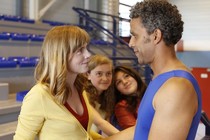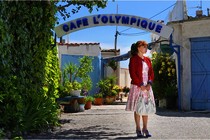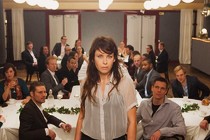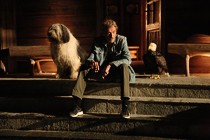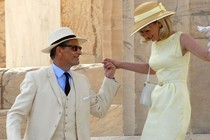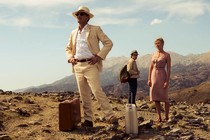Berlinale: Expert storytelling and fine performances in The Two Faces of January
- Hossein Amini debuts as director with a Hitchcockian thriller starring Viggo Mortensen, Oscar Isaac and Kirsten Dunst
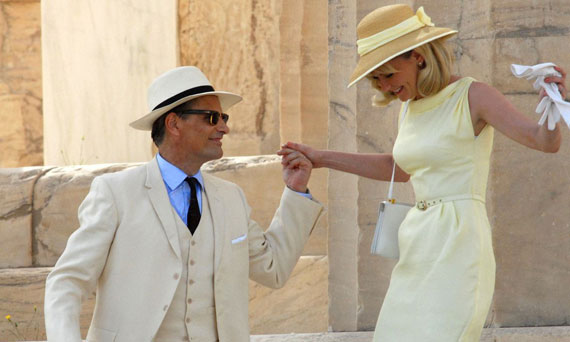
Best known for being the screenwriter of Nicolas Winding Refn's Drive, Iain Softley's Wings of the Dove (for which he was nominated for an Oscar in 1998) and most recently 47 Ronin, the Iranian-born Hossein Amini makes hisimpressive debut as a director with the Berlinale-premiering adaptation of Patricia Highsmith's novel The Two Faces of January [+see also:
trailer
making of
interview: Viggo Mortensen
film profile]. This Hitchcock-style thriller, set in 1962, feels like it was also made in that decade, and compared to most modern films of the genre, it turns out to be very refreshing.
The film opens in Athens, at the Parthenon, where young American Rydel (Oscar Isaac) works as a tourist guide and, using his knowledge of the Greek language, a small-time swindler. While Rydel is taking a group on a tour, the place is visited by an American couple, 50-something Chester MacFarland (Viggo Mortensen) and his much younger wife, Colette (Kirsten Dunst).
Rydel initially takes an interest in Chester, a rich man of the world who reminds him of his recently departed father, with whom he had a tough relationship, but as soon as he takes a better look at the beautiful Colette, there is an even better reason for him to approach them. The trio soon spends a pleasant evening together, but everything changes that same night when we discover another side to Chester and an incident in the couple's hotel forces them to flee to Crete, with Rydel coming along to help them.
Whether out of interest for Colette, or because he's genuinely a nice guy, Rydel finds himself in increasingly dangerous situations, which escalate thanks to Chester's drinking and recklessness. Of course, the tension is increased with Colette's position between the two men and the fact that she is also discovering, for the first time, what her husband is capable of.
But no one in this complicated game is playing with their cards fully on the table, and that is what gives the film its dynamics and suspense. Just like in a Hitchcock thriller, the audience’s interest is held and increased throughout both by plot twists and by the compelling characters. MacFarland has more than two faces, but is not a straight-out villain: his confusion and inability to cope with problems make him too human for that, especially as played by Mortensen with his full acting range, not unlike his role in A History of Violence. Isaac delicately teeters between a likeable guy and an opportunist, frequently managing to be both at the same time, and Dunst's delicate restraint is her strongest weapon.
Expert storytelling and fine acting are given a strong boost by Marcel Zyskind's marvellous cinematography in gorgeous locations which, following Athens and Crete, include Istanbul in the final part of the film. Also of note is Alberto Iglesias' precise jazz-tinted score – again evoking the best of the 1960's thrillers.
The Two Faces of January was co-produced by the UK's Working Title Films, LA-based Timnick Films and StudioCanal, which is also handling the film internationally.
Did you enjoy reading this article? Please subscribe to our newsletter to receive more stories like this directly in your inbox.














